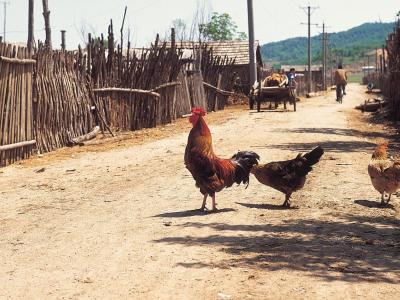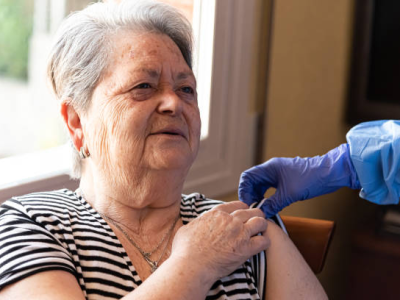Health officials in South Korea today announced 4 more MERS-CoV infections, along with 3 more deaths, moving the overall total to 154 infections, as a World Health Organization (WHO) emergency committee meets to assess new developments.
Three of the four latest MERS-CoV (Middle East respiratory syndrome coronavirus) patients were infected at Samsung Medical Center in Seoul, the outbreak's biggest hot spot, Yonhap News Service reported. The hospital is the source of 75 infections, roughly half of the total.
Details on latest infections, deaths
One of the newly confirmed patients is a man who went with his mother to the hospital's emergency department (ED), along with his sister, the Korea Times reported. He reportedly wasn't on the government's contact list, though his sister was diagnosed as having a MERS-CoV infection on Jun 10.
The man worked at a community center in Daegu and was on the job until Jun 13, when he came down with a fever, which could have exposed people outside of healthcare settings to the disease. South Korea's health ministry has placed 29 of the man's contacts on home monitoring, according to the Times.
Another of the new cases involves a man who visited Samsung's ED with his wife while she was treated at the facility. According to the Times, the man's wife was on a contact list, but he wasn't. His MERS-CoV infection wasn't detected until he sought care at St, Mary's Hospital in Seoul, more than a week after he first started having symptoms.
So far no infections have been linked to community MERS-CoV exposure, but some earlier confirmed cases have health officials worried. They include an ambulance driver at Samsung Medical Center who worked for 9 days after he came down with symptoms and a policeman from Pyeongtaek, the Korea Herald reported today.
So far sustained human transmission of MERS-CoV hasn't been seen in South Korea or in the Middle East, where family clusters have been reported, as well as several hospital outbreaks, such as one occurring in the Saudi Arabian city of Hofuf.
The deaths involved men ages 49, 58, and 65 years old, raising the fatality count to 19, the Korea Times reported today. The group includes the youngest patient so far to die from the disease. He had two underlying health conditions, cirrhosis and diabetes, according to the report.
The other two men who died did not have pre-existing medical conditions, however, in contrast to most of the other case-patients who died, according to the report.
WHO's latest assessment
In its latest update on the outbreak today, the WHO said the outbreak appears to be declining, a sign that control measures are having an effect. However, it noted that it's too early to tell what impact that recently strengthened response has had on transmission.
With such a large number of contacts still being monitored, more cases are likely to be reported before the outbreak ends, the agency said. According to South Korean media reports today, 5,580 possible contacts are in isolation. Though a surge of new cases is unlikely, South Korea has enough triage, isolation, equipment, and testing facilities in place to handle the load, the WHO said.
The agency said the outbreak appears to be contained largely to healthcare settings with no known spillover to the general population.
MERS-CoV can be difficult to diagnose, especially early in an outbreak when awareness is low and because nonspecific symptoms mimic flulike illness, the WHO said. It also highlighted the challenges of lab diagnosis, given that the virus is more difficult to detect in the upper airways early in the disease, which can lead to false-negative results.
The group added that lower respiratory samples are more likely to yield positive results early in the illness, but they are more difficult to collect. Lab testing is more robust when samples are obtained from the lower respiratory tract later in the illness, when patients are hospitalized.
South Korea retests symptomatic contacts who initially test negative, the WHO said.
Emergency committee meets
Meanwhile, a 17-member WHO emergency committee on MERS-CoV is meeting today by teleconference, its ninth such consultation since the virus was detected in humans in 2012.
Speculation is swirling about whether the group will decide if the latest developments should trigger a public health emergency, as defined by International Health Regulations. The panel might also add or modify its recommendations for curbing the spread of the virus.
At its last meeting in February, the MERS emergency committee concluded that the public health emergency criteria hadn't been met, but members said they were concerned about the threat of international spread.
Since then, several new developments have occurred, including:
- Ongoing disease activity in Saudi Arabia, including a family cluster and an expanding hospital cluster in Hofuf
- Sporadic detections in countries such as Qatar and the United Arab Emirates (see related story today)
- South Korea's large hospital cluster that began with a single infection in a man who had traveled to four Middle Eastern countries
- China's first imported MERS-CoV case, in a man with links to South Korea's outbreak
The WHO has scheduled a media briefing tomorrow morning in Geneva to provide details about the committee deliberations.
Margaret Chan, MD, MPH, the WHO's director-general, is slated to visit South Korea on Jun 18 for an international nurse's conference and may address South Korea's MERS outbreak and response recommendations, according to media reports.
See also:
Jun 16 Korea Times story
Jun 16 Korea Herald story
Jun 16 WHO situation update
WHO MERS-CoV emergency committee background





















